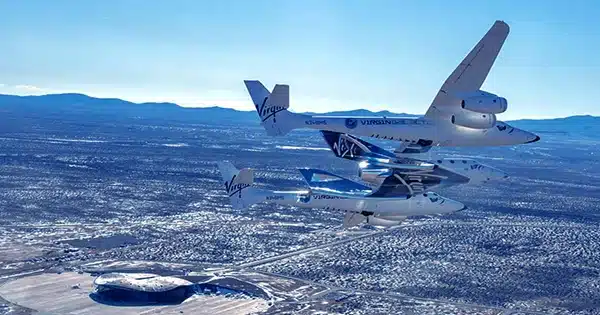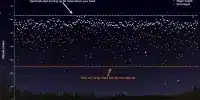Virgin Galactic successfully completed its first mission in nearly two years on Thursday, following an “enhancement period” to boost its fleet’s safety.
It was the space tourism company’s sixth test, and it has been hailed as the final test before commercial operations begin in late June, with personnel of the Italian Air Force as the first paying customers.
The business tweeted, “Touchdown, VSS Unity!” a reference to the name of the company’s spaceplane. “Our crew and spacecraft have safely landed at Spaceport America in New Mexico.”
The trip “was a fantastic achievement for everyone at Virgin Galactic,” said CEO Michael Colglazier.
The Unity 25 mission took four company personnel to an altitude of just over 54 miles (87 kilometers).
Virgin Galactic’s space program has been plagued by years of delays, including a fatal accident in 2014.
Unlike other businesses that utilize vertical-launch rockets, Virgin Galactic uses a carrier aircraft with two pilots that takes off from a runway, achieves altitude, and drops a rocket-powered plane into space at nearly Mach 3 before gliding back to Earth.
The whole flight time is 90 minutes, with passengers experiencing weightlessness in the space plane’s cabin for a few minutes.
The company’s flamboyant founder, British billionaire Richard Branson, was on board for the first fully crewed trip in 2021.
However, what appeared to be a watershed moment for the firm was overshadowed by an official safety investigation after the spaceplane was discovered to have dipped beyond its designated airspace during its descent.
The Federal Aviation Administration later approved the business to resume operations after it committed to take corrective procedures.
Virgin Galactic has sold 800 tickets for future commercial flights, 600 for $200,000 to $250,000 between 2005 and 2014, and 200 after then for $450,000 apiece.
It competes in the “suborbital” space tourism market with Blue Origin, a business founded by billionaire Jeff Bezos that has already sent 32 people into space.
However, Blue Origin’s rocket has been suspended following an unmanned flying disaster in September 2022. In March, the firm stated that it would begin spaceflight soon.














